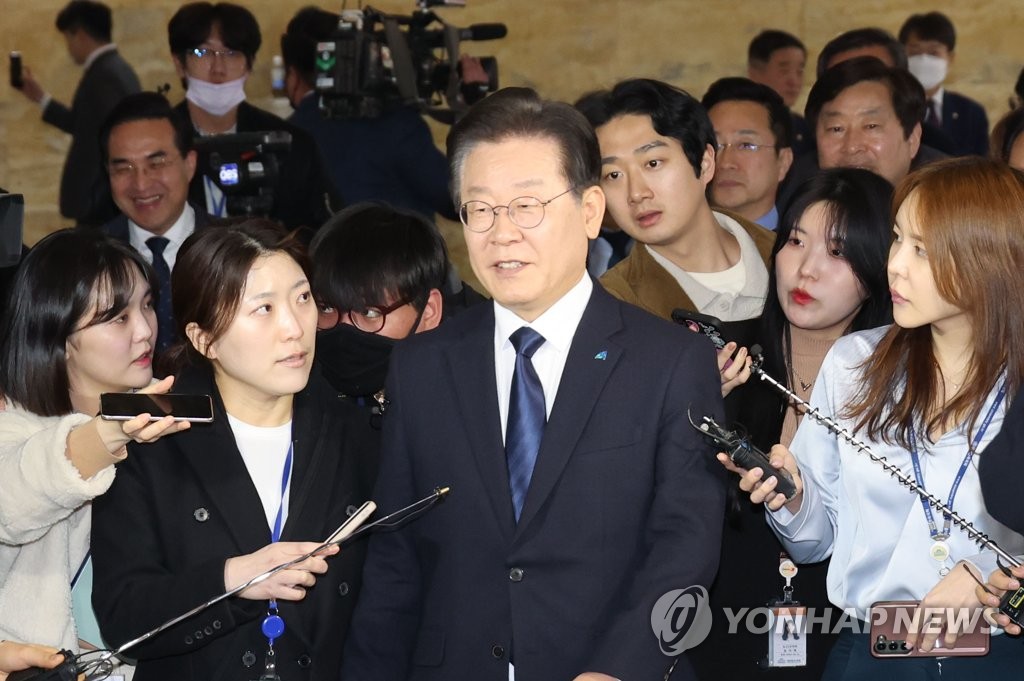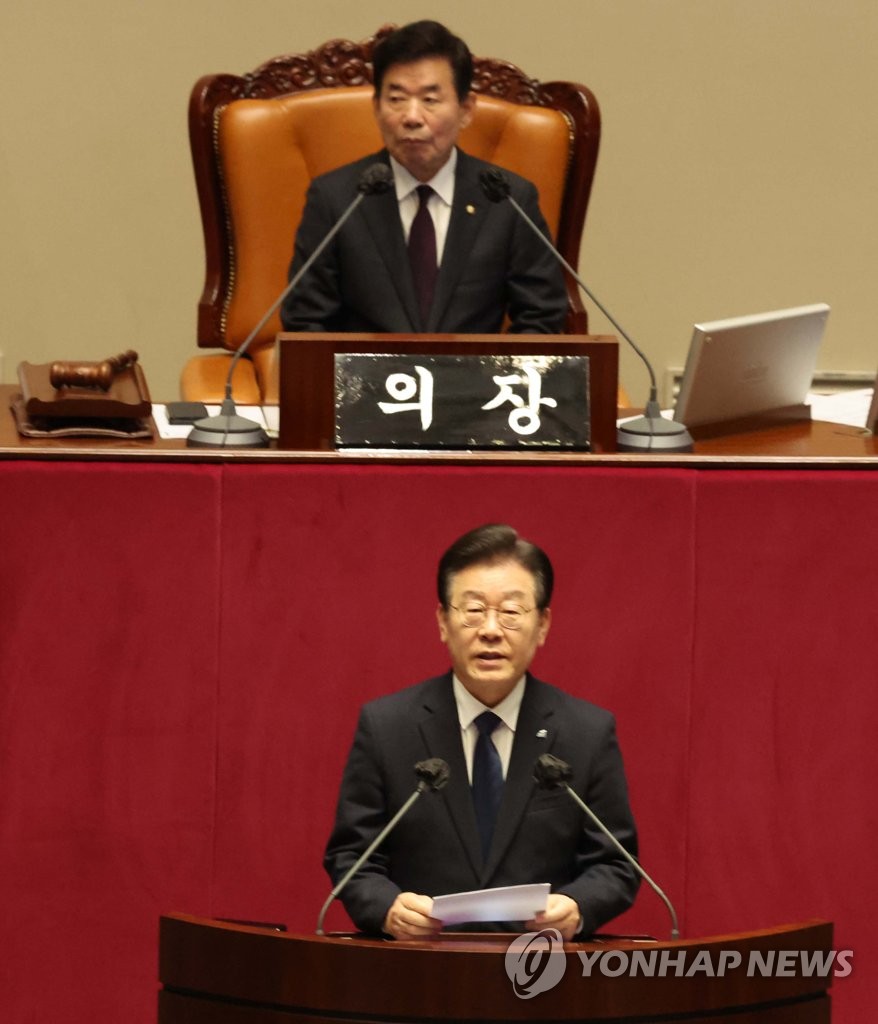- California Assembly OKs highest minimum wage in nation
- S. Korea unveils first graphic cigarette warnings
- US joins with South Korea, Japan in bid to deter North Korea
- LPGA golfer Chun In-gee finally back in action
- S. Korea won’t be top seed in final World Cup qualification round
- US men’s soccer misses 2nd straight Olympics
- US back on track in qualifying with 4-0 win over Guatemala
- High-intensity workout injuries spawn cottage industry
- CDC expands range of Zika mosquitoes into parts of Northeast
- Who knew? ‘The Walking Dead’ is helping families connect
National Assembly votes narrowly to reject motion for opposition leader’s arrest
The National Assembly voted Monday to reject the government’s request for consent to arrest opposition leader Lee Jae-myung over corruption charges by a margin of only one vote, a surprising result that shows many of Lee’s own party voted for his arrest.
The motion was voted down 139-138 with nine abstentions and 11 deemed invalid.
The result, though in line with widespread views that Lee’s main opposition Democratic Party (DP) would use its majority power to reject the request, came as a surprise because it could mean that up to 30 DP lawmakers could have cast dissenting votes.
The DP, which has 169 lawmakers in the 299-seat National Assembly, had urged its lawmakers to reject the motion, denouncing the prosecution’s attempt to arrest Lee as political revenge by President Yoon Suk Yeol against his presidential election rival.
All DP lawmakers took part in the vote.
In order for the motion to pass, it required a majority of the Assembly members to vote, and a majority of those voting to cast their ballots in favor. In Monday’s case, at least 149 votes were needed in favor of Lee’s arrest, as 297 out of 299 National Assembly members took part in the vote.
By law, parliamentary consent is necessary to arrest a lawmaker while parliament is in session.

Prosecutors had earlier sought an arrest warrant for Lee over development corruption and bribery allegations arising from his time as the mayor of Seongnam, south of Seoul, from 2010-18. It marked the first time that an arrest warrant was sought for the head of the country’s largest opposition party.
Lee has claimed his innocence, rejecting all allegations against him as fabrication.
The ruling People Power Party (PPP) has urged Lee to give up his immunity from arrest and show up for a court hearing on the arrest warrant. It has criticized the DP for opening temporary parliamentary sessions to protect its leader from arrest.
Prosecutors are widely expected to indict the opposition leader without detention, as parliament’s rejection of the motion will lead to the automatic dismissal of the prosecution’s arrest warrant request against him.

After the vote, PPP floor leader Joo Ho-young called on Lee to step down as DP chair to take “political responsibility.” He noted the vote result should be regarded as de facto consent, given some DP lawmakers voted in favor of the motion.
“The DP, with its majority of parliamentary seats, ultimately denied the rule of law, the very foundation of democracy. Today will go down in history as the day of disgrace for the National Assembly,” PPP spokesperson Park Jeong-ha said.
DP floor leader Park Hong-keun said the rejection is a “reasonable outcome,” considering the “unfair” nature of the investigation into Lee.
“We protected democracy from the unfair political suppression by the Yoon Suk Yeol administration,” Park said. He called on the Yoon government to focus on helping people’s livelihoods rather than trying to remove his political enemy.
Park acknowledged the result showed there are different opinions about Lee within the party, adding he will work to hear them out.
Justice Minister Han Dong-hoon, who urged the Assembly to consent to Lee’s arrest, said he believes the lawmakers’ immunity from arrest was not intended for situations like this.
The presidential office declined to comment, citing the inappropriateness of making a statement about the matter.











